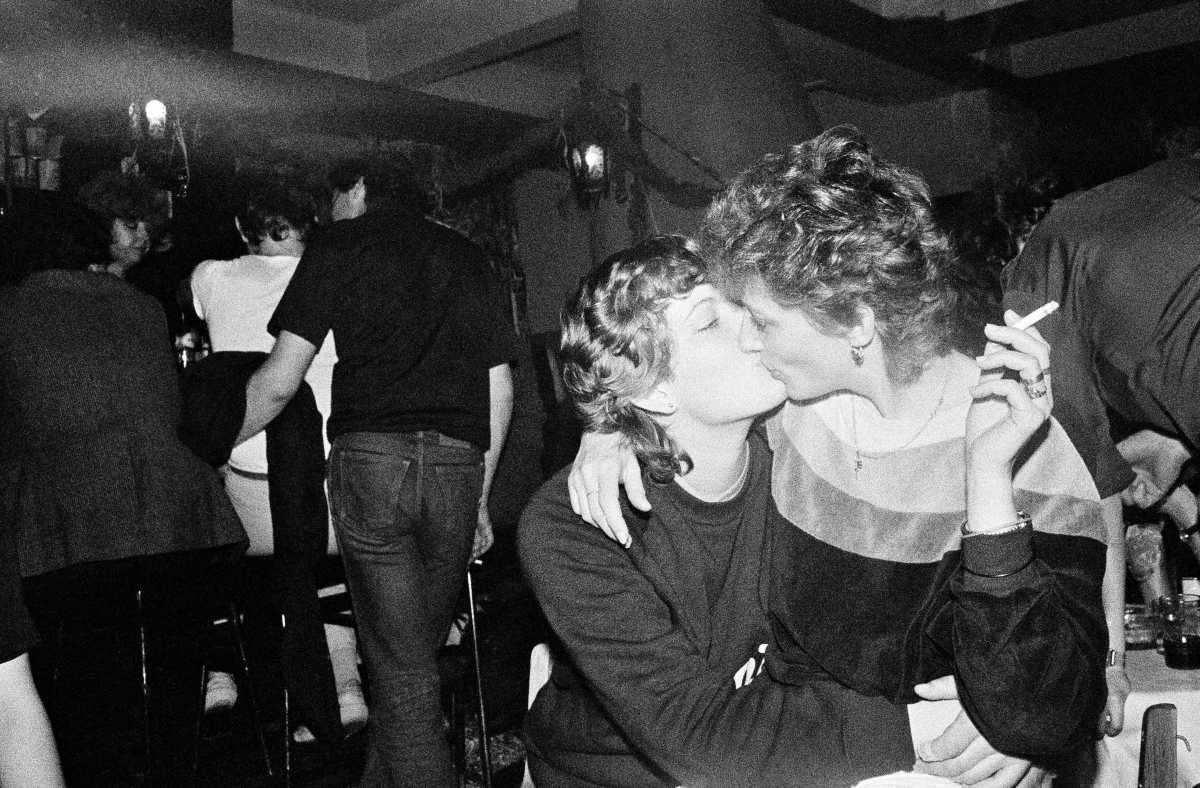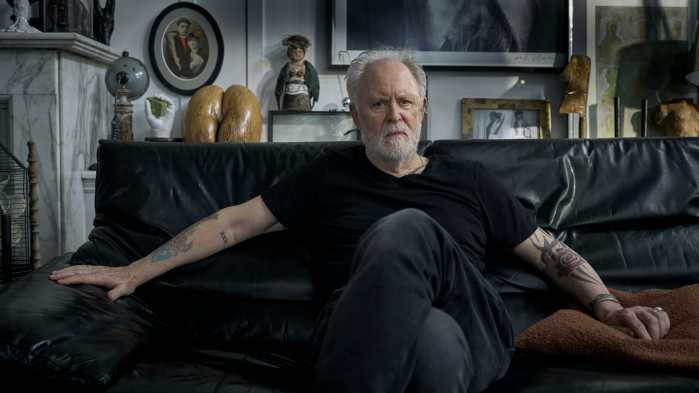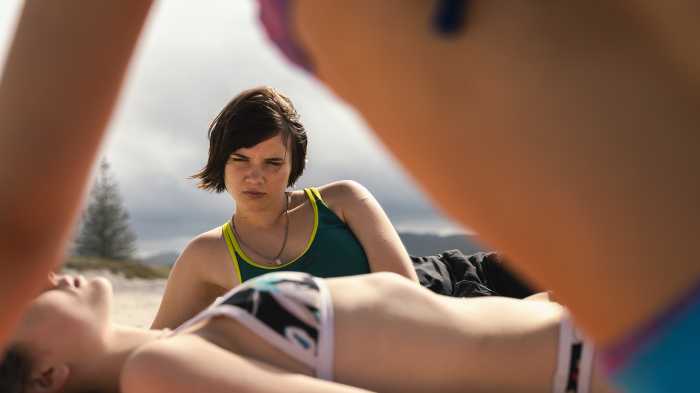“I’m Not Everything I Want To Be” is a memoir told through 3,000 photos. A chronicle of Czech photographer Libuše Jarcovjáková’s life and work, it was assembled by director Klára Tasovská. Jarcovjáková is a full participant in the documentary, supplying a voice-over taken from her diaries. Most of the photos come from a 21-year period between 1968 and 1989, spanning momentous occasions in history and the artist’s own life. Her immersion in ‘80s Czechoslovak queer culture, where she was a regular at the gay bar T-Club, contributed to some of her happiest moments. The club itself and the people she met there inspired some of her best work.
Jarcovjáková has been likened to Nan Goldin, whose photos share both an autobiographical dimension and an unflinching quality. (While Goldin didn’t quite present her 1985 collection “The Ballad of Sexual Dependency” as a film, she came close, projecting it in nightclubs as a slide show set to music.) She became an adult at the moment the USSR took over Prague. Her desire to attend college was held back by her parents’ bourgeois background; instead, she was ordered to work at a printing press. She had to appeal to the state to get an abortion. Despite these setbacks, including a long, unhappy marriage, she kept taking photos all the while. A trip to Japan in 1979 offered a glimpse of a freer world, but she wasn’t able to remain in the country. Upon return to Czechoslovkia, she began attending T-Club.
“I’m Not Everything I Want To Be” introduces the photographer through a place which will become a recurring motif: the Vitava River. While the film’s very first images are nearly abstract, a storm gathers outside them. People are notably absent from these photographs, but outside the frame, Soviet tanks invaded Prague. Tasovská cuts from birds flying overhead to the first intimations of this violation. Jarcovjáková’s black-and-white photos live up to the greyness so often associated with Eastern European communism. Her recourse to blurred, out-of-focus camerawork only adds to this quality.
That said, there’s much more to her work and this film than a look back to the bleak street life of ‘70s and ‘80s Prague. While largely sticking to black and white, Jarcovjáková shows a striking range. Following an unhappy abortion, she films her body as though it were shadowed in darkness. As much as she likes smeared images, she also delivered crisp, high-contrast work. Her preference for blurs evokes the distorting effects of memory. Never shying away from nudity or hints of desire, whether shooting her own body or other women’s, she nonetheless refrains from pandering to voyeurism.
Jarcovjáková’s images of T-Club make it look like a permanent birthday party. Men and women happily gather together, taking refuge from the outside world. The photographer doesn’t define her sexuality, but her nude images of Ewa, a troubled woman she met there, are full of erotic longing. She was introduced to T-Club when her friend Zdenek came out to her. At that time, the Czechoslovak party line was that LGBTQ people didn’t exist in the country. Another gay friend played a major role in her life, enabling her to stage a fraudulent marriage that let her escape Czechoslovakia and move to West Berlin. Yet Jarcovjáková’s documentation of T-Club had the potential to become a form of surveillance. Following violence, she turned over some of her photos to the police, only later realizing how dangerous this could be. She stopped shooting in the club.
Tasovská does her utmost to offer an unfiltered platform for Jarcovjáková. The film is drawn entirely from her stills. Some are edited so quickly that they appear animated, but no images were shot with a moving camera. “I’m Not Everything I Want To Be” contributes a crucial new dimension: the soundtrack. The film adds foley effects and music to dramatize Jarcovjáková’s experiences. In a few scenes, this can become on-the-nose: “I’m Not Everything I Want To Be” tends to underline joyful, liberating encounters through dance music, speeding up the montage of stills. But it does an exciting job of translating Jarcovjáková’s work into a different medium while remaining true to its essence. As a diary film, it successfully crosses two artists’ perspectives.
“I’m Not Everything I Want To Be” | Directed by Klára Tasovská | In Czech with English subtitles | Anthology Film Archives | Runs July 12-14




































